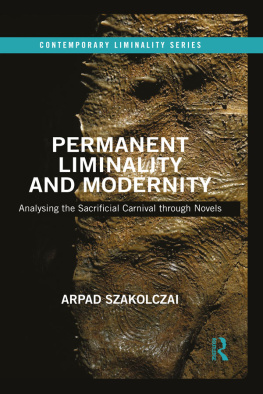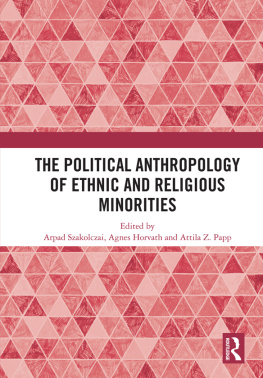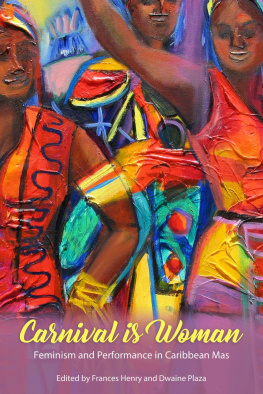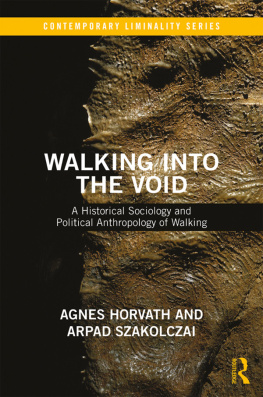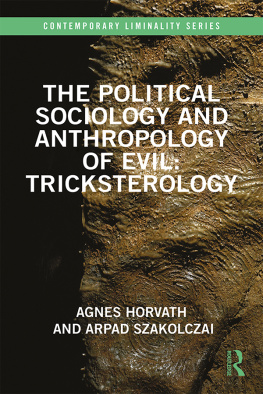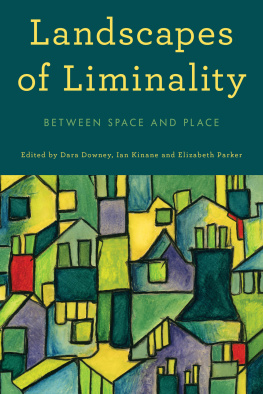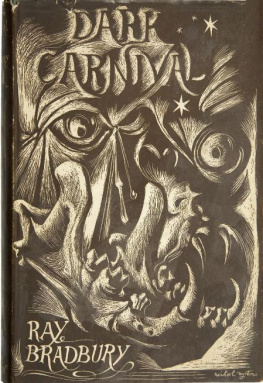Arpad Szakolczai - Permanent Liminality and Modernity: Analysing the Sacrificial Carnival Through Novels
Here you can read online Arpad Szakolczai - Permanent Liminality and Modernity: Analysing the Sacrificial Carnival Through Novels full text of the book (entire story) in english for free. Download pdf and epub, get meaning, cover and reviews about this ebook. year: 2018, publisher: Taylor & Francis (CAM), genre: Politics. Description of the work, (preface) as well as reviews are available. Best literature library LitArk.com created for fans of good reading and offers a wide selection of genres:
Romance novel
Science fiction
Adventure
Detective
Science
History
Home and family
Prose
Art
Politics
Computer
Non-fiction
Religion
Business
Children
Humor
Choose a favorite category and find really read worthwhile books. Enjoy immersion in the world of imagination, feel the emotions of the characters or learn something new for yourself, make an fascinating discovery.
- Book:Permanent Liminality and Modernity: Analysing the Sacrificial Carnival Through Novels
- Author:
- Publisher:Taylor & Francis (CAM)
- Genre:
- Year:2018
- Rating:4 / 5
- Favourites:Add to favourites
- Your mark:
- 80
- 1
- 2
- 3
- 4
- 5
Permanent Liminality and Modernity: Analysing the Sacrificial Carnival Through Novels: summary, description and annotation
We offer to read an annotation, description, summary or preface (depends on what the author of the book "Permanent Liminality and Modernity: Analysing the Sacrificial Carnival Through Novels" wrote himself). If you haven't found the necessary information about the book — write in the comments, we will try to find it.
Permanent Liminality and Modernity: Analysing the Sacrificial Carnival Through Novels — read online for free the complete book (whole text) full work
Below is the text of the book, divided by pages. System saving the place of the last page read, allows you to conveniently read the book "Permanent Liminality and Modernity: Analysing the Sacrificial Carnival Through Novels" online for free, without having to search again every time where you left off. Put a bookmark, and you can go to the page where you finished reading at any time.
Font size:
Interval:
Bookmark:
First published 2017
by Routledge
2 Park Square, Milton Park, Abingdon, Oxon OX14 4RN
and by Routledge
711 Third Avenue, New York, NY 10017
Routledge is an imprint of the Taylor & Francis Group, an informa business
2017 Arpad Szakolczai
The right of Arpad Szakolczai to be identified as author of this work has been asserted by him in accordance with sections 77 and 78 of the Copyright, Designs and Patents Act 1988.
All rights reserved. No part of this book may be reprinted or reproduced or utilised in any form or by any electronic, mechanical, or other means, now known or hereafter invented, including photocopying and recording, or in any information storage or retrieval system, without permission in writing from the publishers.
Trademark notice: Product or corporate names may be trademarks or registered trademarks, and are used only for identification and explanation without intent to infringe.
British Library Cataloguing in Publication Data
A catalogue record for this book is available from the British Library
Library of Congress Cataloging in Publication Data
A catalog record for this book has been requested
ISBN: 978-1-4724-7388-2 (hbk)
ISBN: 978-1-315-60005-5 (ebk)
Typeset in Times New Roman
by Keystroke, Neville Lodge, Tettenhall, Wolverhampton

There is more freedom within the narrowest bounds, within the most specific task, than in that boundless non-place which modern consciousness imagines to be the playground of freedom
Hofmannsthal, Book of Friends
Count it the worst disgrace to prefer survival to honour;
And, for the sake of life, lose the point of living.
Juvenal, Satires
Where no gods are, spectres rule
Novalis
Talking about the ambivalence or ambiguity of modernity is a major intellectual fashion. As always, the pioneering ideas (Bauman 1991) were refreshing, even insightful. They offered a way to go jointly beyond the dualism of promoting modernity or endorsing critical theory: schismogenic doubles. However, by our days, the term has lost all its charm, become a facile manner to deflect any serious questioning. The ambivalence of modernity came to mean that the modern world, as all things in life, has many aspects: some good, others less so. Nothing is perfect, there are no beds of roses, so we should rather get on with our daily business. Such a position, however, is clearly unhelpful in understanding what is going on today with all of us in the planet, as what is increasingly rendered impossible to do, in and by the modern world, is just to proceed with normal daily existence.
As so often, Max Weber offers a perspective that is still more fresh today than most sociological works written over the last decades. In a recent article Ivn Szelnyi argued that in contrast to Habermas Weber is the sociologist of the twenty-first century, having digested the insights of Nietzsche and pointing forward to Foucault (Szelnyi 2015: 5).
Taking up his insights, such lasting relevance could be due to Webers recognition of the disruptive tensions that animate the dynamics of the modern world. What Weber perceived, with singular and almost unique clarity, is that modernity was not simply ambivalent, but can be characterised by two sets of radically opposed categories. On the one hand, the modern world seems to spread almost freely though with the full ambiguity of the term, recognised already by Marx a series of benefits around the world: unprecedented economic prosperity and well-being, scientific and technological knowledge, legal security and the universality of human rights, a care for the suffering and the weak, tolerance for reasonable difference. On the other, however, it is also evidently the source of some of the most atrocious sufferings that were ever inflicted in the planet, and in a similarly striking and unprecedented manner, including two world worlds, a number of totalitarian states, a series of genocides, including the Holocaust, the disempowering of most human beings, the destruction of cultures and ways of life, and the spread of a single, dominant and particularly repulsive form of technologised mass culture and way of living. Understanding modernity, through Weber, means to take up the task of confronting the nature of the forces animating the increasing, and increasingly intolerable, tensions driving the project of modernity.
This book is part of a long-term effort at understanding the nature and dynamics of the contemporary global modern world. From one perspective, it is the seventh and final volume of a series of books, all published by Routledge, offering elements towards a genealogy of modernity, being particularly close to Novels and the Sociology of the Contemporary , which deals with the classical modern novel. From another, it is the first volume of the Routledge (formerly Ashgate) series on Contemporary Liminality that proposes the use of anthropological concepts for analysing our world (see also Boland 2013; Horvath 2013a; Horvath and Thomassen 2008; Horvath et al. 2015; Thomassen 2014; Thomassen and Wydra forthcoming; Wydra 2015). Thus, while part of a long-term project, the book aims at coming to terms with the here and now, jointly relying on historical and anthropological perspectives, exploring the idea that the modern condition can be best characterised as a paradoxical state of permanent liminality (on liminality, see van Gennep 1981; Turner 1967, 1969; Szakolczai 2009, Thomassen 2009; on permanent liminality, Szakolczai 2000).
Being the concluding volume of a twenty-some-years-long project, this book evidently owes a lot to many people, all of whom cannot be possibly named here. I must focus only on those whose contribution in bringing this book to completion was particularly special.
These include first of all the founding editors of International Political Anthropology , Harald Wydra, Bjrn Thomassen and especially gnes Horvth, animating spirit of all the intellectual ventures of the journal, including the book series, the Socratic Symposia, the various conferences, and in particular the yearly summer schools; the associate and assistant editors of the journal, Tom Boland, John OBrien, James Cuffe, Julian Davis, Brian Finucane and Sam Boland; and all the various participants of the past IPA summer schools.
I express warm thanks to my colleagues at University College Cork, in particular Kieran Keohane and Colin Sumner, fellow directors of the Centre for the Study of the Moral Foundations of Economy & Society , founded under the President of Ireland Ethics Initiative; the vital, persistent support of Caroline Fennell (Head of College), Colin Sumner (Head of School), Kieran Keohane and Niamh Hourigan (successive Heads of Department) and Anne Gannon; the students attending my postgraduate seminars, especially my PhD students; and the UCC Strategic Fund, which offered a vital help to complete the book more or less in time. As always, it is a special pleasure to recall here the numerous discussions I had with James Fairhead; and also Tony OConnor.
My sincere gratitude is expressed to the librarians of the Boole Library, University College Cork, the Biblioteca Nazionale Centrale di Firenze, the Library of the European University Institute in Florence and Cambridge University Library; and to my editor, first at Ashgate and then Routledge, Neil Jordan.
I recall those who did not see the completion of the project: my mother, Klra Osztroluczky; my academic mentor in Hungary, Elemr Hankiss; my close colleague and friend in Cork, Paddy OCarroll; and Martin Riesebrodt, all of whom passed away during the winter of 2014/15.
Font size:
Interval:
Bookmark:
Similar books «Permanent Liminality and Modernity: Analysing the Sacrificial Carnival Through Novels»
Look at similar books to Permanent Liminality and Modernity: Analysing the Sacrificial Carnival Through Novels. We have selected literature similar in name and meaning in the hope of providing readers with more options to find new, interesting, not yet read works.
Discussion, reviews of the book Permanent Liminality and Modernity: Analysing the Sacrificial Carnival Through Novels and just readers' own opinions. Leave your comments, write what you think about the work, its meaning or the main characters. Specify what exactly you liked and what you didn't like, and why you think so.

